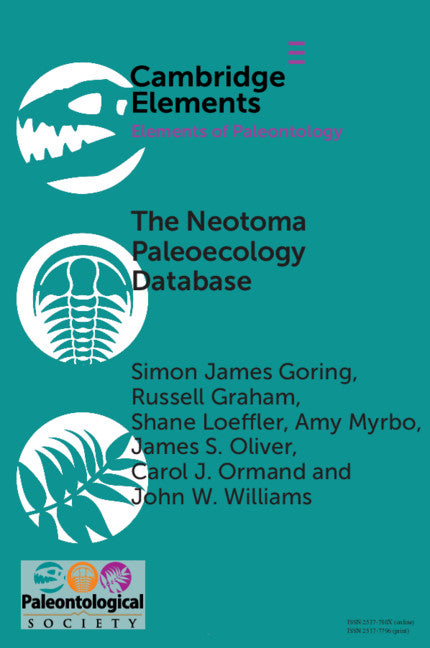Freshly Printed - allow 8 days lead
Couldn't load pickup availability
The Neotoma Paleoecology Database
A Research Outreach Nexus
The Neotoma Paleoecology Database provides support to educators from primary schools to graduate students.
Simon James Goring (Author), Russell Graham (Author), Shane Loeffler (Author), Amy Myrbo (Author), James S. Oliver (Author), Carol Ormond (Author), John W. Williams (Author)
9781108717885, Cambridge University Press
Paperback / softback, published 29 November 2018
75 pages, 2 b/w illus. 5 colour illus. 1 table
23 x 15.3 x 0.3 cm, 0.07 kg
Paleoecological data from the Quaternary Period (2.6 million years ago to present) provides an opportunity for educational outreach for the earth and biological sciences. Paleoecology data repositories serve as technical hubs and focal points within their disciplinary communities and so are uniquely situated to help produce teaching modules and engagement resources. The Neotoma Paleoecology Database provides support to educators from primary schools to graduate students. In collaboration with pedagogical experts, the Neotoma Paleoecology Database team has developed teaching modules and model workflows. Early education is centered on discovery; higher-level educational tools focus on illustrating best practices for technical tasks. Collaborations among pedagogic experts, technical experts and data stewards, centered around data resources such as Neotoma, provide an important role within research communities, and an important service to society, supporting best practices, translating current research advances to interested audiences, and communicating the importance of individual research disciplines.
1. Introduction
2. The Neotoma Paleoecology Database
3. Neotoma Explorer – data discovery and exploration
4. More exploration with explorer – additional SERC teaching exercises
5. Educational modules for climate change, paleoecology, and biogeography
6. Programmatic access for macro-scale paleoecological research (APIs, Neotoma R, and GitHub)
7. Flyover Country® – beyond the classroom
8. Discussion.
Subject Areas: Palaeontology [RBX], Educational equipment & technology, computer-aided learning [CAL JNV], Teaching of a specific subject [JNU], Teaching skills & techniques [JNT], Universities [JNMN]


